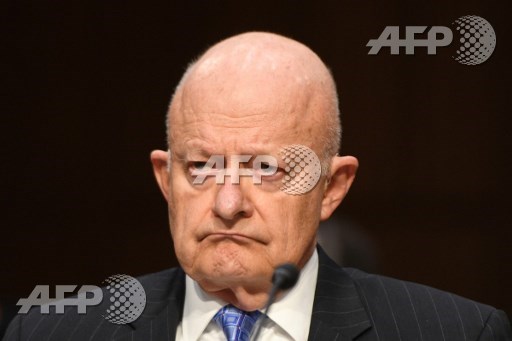
June 7, 2017
(AFP) - Australia must be alert to foreign government interference in its democratic systems, former top US intelligence official James Clapper warned Wednesday, after China was accused of meddling in the country's politics.
Canberra has ordered an inquiry into espionage laws and foreign government activities after a media investigation this week into large political donations by two Chinese billionaires with reported links to China's Communist Party.
The probe, by the Australian Broadcasting Corporation and Fairfax Media, said intelligence agencies had major concerns that Beijing was interfering in Australian institutions and using the political donations system to gain access.
Clapper, the US director of national intelligence under Barack Obama, told the ABC he sees some similarities between China's efforts and what Moscow attempted in his own country.
"They are seeking ways to influence using many techniques; diplomatic, economic, military that they haven't done before," he said.
"It's focused here, it's focused regionally and focused globally."
Russia has been accused of meddling in the US election last year, and of possible collusion with the campaign of Donald Trump.
Clapper said the challenge both Washington and Canberra faced was "the potential jeopardy to the very fundamental underpinnings of our political system".
The Australian media investigation showed that property developers Huang Xiangmo and Chau Chak Wing, or their associates, had donated around AUS$6.7 million ($5 million) to political parties over a decade.
Both reportedly have connections to China's ruling Communist Party.
China's foreign ministry on Tuesday called the reports "totally groundless", but Prime Minister Malcolm Turnbull was concerned enough to order a review of espionage laws and legislation around the activities of foreign governments.
"The sovereignty of Australia, the sovereignty of our democratic processes, free from foreign interference, is a matter of the highest concern," he said.
While regulated, political donations from foreign interests remain legal in Australia, unlike the United States, which is something Clapper suggested should be looked at.
"It's hard for me to rationalise why that is a good thing to do, why that has a salutary benefit of allowing foreign donations to influence potentially our politics," said Clapper, who is a visiting professor at the Australian National University.








